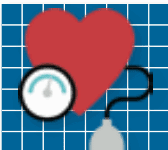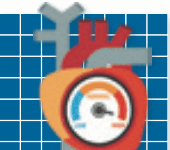More than half of the estimated four million American adults undergoing treatment for hypertension do not have their blood pressure (BP) under control. But research presented in April at the American College of Cardiologys annual meeting shows that a change in medication strategy-combining two medications in one pill-may be more effective in treating hypertension and reducing heart attacks, strokes, and even deaths. The Avoiding Cardiovascular Events in Combination Therapy in Patients Living with Systolic Hypertension (ACCOMPLISH) trial compared the effectiveness of two "combination" pills. One pill combined an angiotensin-converting enzyme (ACE) inhibitor (benazepril) with a diuretic (hydrochlorothiazide); the other pill combined the same ACE inhibitor with amlodipine, a calcium channel blocker (CCB). After 36 months, 76 percent of all study participants had their BP under control (less than 140/90 millimeters of mercury, or mmHg). The ACE/CCB combination was slightly more effective (79.9 percent) than the ACE/diuretic combo (76.2 percent).
To continue reading this article or issue you must be a paid subscriber.
Sign in





